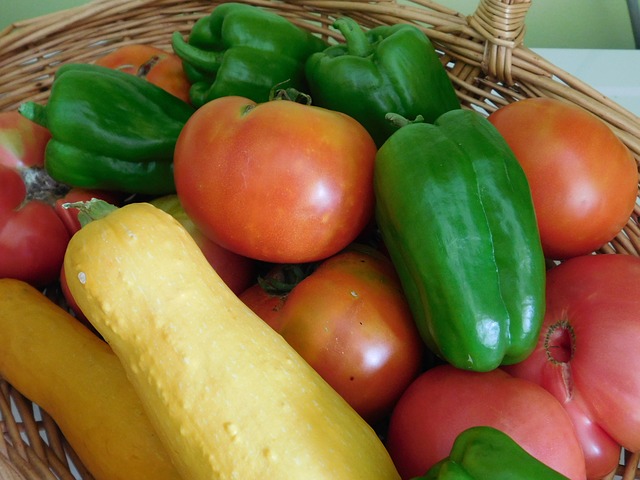Homesteading can be defined many different ways, but it almost always includes the basic tenet of food independence. Raising your own food is indeed at the heart of homesteading, but the act of doing so can be a bit more complicated than it appears on the surface. While there are many good things about raising food, there are some drawbacks as well.
The Rewards Of Raising Food
1. The idea of being self-sufficient. Few things are more satisfying than knowing you are able to feed yourself and your loved ones without relying on—or having only minimal reliance on—commercial food producers. Knowing that you will not be among those waiting helplessly for assistance in the event of a catastrophe is empowering. Having the skill and confidence to transform a packet of seeds into a jar of home-canned tomatoes and to make healthful homemade feta from fresh goat milk are the things which make most homesteaders keep doing what they do.
2. You control the chemicals. If omitting genetically modified organisms, pesticides and herbicides from your diet is a big deal to you, then raising your own food is one of the best ways to make sure you are in charge of what you consume.
“The Big Book Of Off The Grid Secrets” — Every Homesteader Needs One!
While it is true that few of us truly control 100 percent of what we eat—many homesteading purchase livestock feed from a commercial entity, accept a third-party opinion on the safety of organic garden remedies, and add store-bought foods to the pantry—it is still a rewarding feeling to be able to make those choices.
3. You are able to do it humanely. If you have seen the videos depicting deplorable conditions on huge factory farms and do not want to support that industry, or if it is important to you that farm animals live as rich as possible, then raising our own animals can provide the peace of mind you need.
4. You can choose the varieties and breeds. If heirloom vegetables and heritage breeds are your passion, you are not likely to find those choices at the supermarket. Commercial farms are in business to make money, not to cater to your culinary preferences, so they choose the varieties that ship best, grow fastest, and cost the least to raise. If you are compelled to eat only the best, then you will want to produce it yourself.
5. Environmental concerns. Raising your own food allows you to avoid excess food packaging as well as to eliminated the petroleum products used in commercial processing, refrigeration and shipping.
The Costs Of Raising Food
1. It can be expensive. You are not likely to save much money overall by raising your own food, especially if you are going for high quality. By that I mean, if you choose basic plant cultivars and apply pesticides, your vegetables might cost less than the organic heirloom varieties at the farmers’ market. But otherwise, it might cost as much or more. Compromise might be a good cost-saving measure—raise the products you can without breaking the bank, and buy the rest elsewhere.
2. It is a LOT OF WORK. I cannot stress that enough. It is more than just planting and weeding and harvesting and preserving. It is spending an hour every day for two months straight hand-picking Japanese beetles off the berries and the squash bugs out of the cucumbers. It is watering. It is taping up young fruit trees to keep them from being killed by rodents during winter. It is staying up all night, presiding over a difficult birth in the barn and still working the next day. It is a thousand little things every day, mixed in with some big things and an amazing number of unanticipated things, that can add up to pure exhaustion. If you love raising your own food, the volume of work will be worth it. But if you are looking an easy ride, this method of circumventing the supermarket is not the way to go.
3. The lifestyle is restricting. Livestock cannot be left untended. They must be fed, watered and mucked out every day. Dairy animals must be milked. They must be protected from predation and inclement weather, and need extra attention when sick or injured. Vegetables, too, can be demanding—they need watering, weeding and harvesting on their schedule, not yours. Hailstorms, droughts and wildlife looking for a free meal will not wait until you are home from vacation. Farm-sitters are always a possibility, but often expensive or hard to find. If you want to raise your own food, it is an absolute must that you fully embrace the idea of spending most of your time at home.
4. It can be emotionally challenging. Raising animals for meat is tough, and balancing between the needs of animals and humans can sometimes leave you feeling as if you are walking a tightrope.
5. Flexible eating habits are required. Raising your own food demands a different mindset than buying it at the supermarket. Instead of deciding what you want to eat and then going out to buy the ingredients, you need to turn that process around: see what you have in the garden or root cellar or pantry, and build your menu around those ingredients. You need to accept the ebb and flow of availability, too. For example, if it was a banner year for tomatoes, you will probably eat more red sauce, ketchup, tomato chutney, tomato soup and other tomato products in the ensuing months than you may have eaten otherwise. Conversely, when your hens are molting and egg production is low, you may have to eat more oatmeal than eggs for breakfast and suspend indulgences such as pound cakes.
As you can see, the prospect of raising your own food is a big deal. Whether you endeavor to raise all or most of your food, or simply grow a small plot of vegetables or keep a couple of laying hens to supplement the food you purchase, it can involve a bit of a tradeoff. The rewards are huge, but the costs are not insignificant. At the end of the day, we all make choices that work best in our lives and keep focused on the positive aspects of our choices.
What do you think? Is raising your own food worth it? Share your thoughts in the section below:
Discover The Secret To Saving Thousands At The Grocery Store. Read More Here.
 Off The Grid News Better Ideas For Off The Grid Living
Off The Grid News Better Ideas For Off The Grid Living





